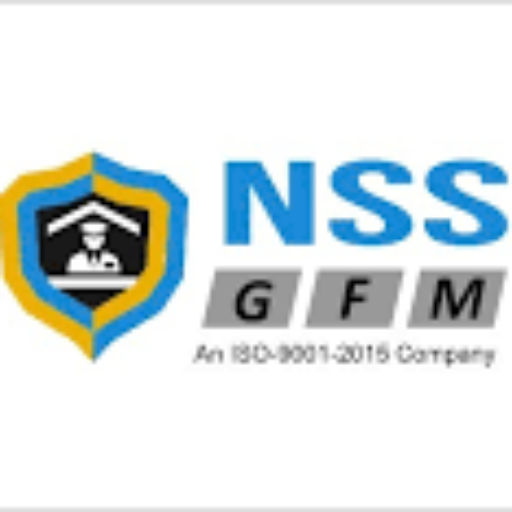
Creating Standard Operating Procedures (SOPs) for an estate manager involves outlining clear guidelines and protocols for the management and maintenance of the estate. Here’s a comprehensive guide to developing SOPs for an estate manager:
Table of Contents
1. Introduction
– Purpose
– Scope
– Responsibilities
2. Estate Maintenance
– Daily, Weekly, Monthly Tasks
– Landscaping and Garden Care
– Pool and Recreational Areas Maintenance
– Seasonal Maintenance
3. Housekeeping
– Cleaning Schedules
– Laundry Services
– Waste Management
– Inventory Management
4. Staff Management
– Hiring and Training
– Scheduling and Payroll
– Performance Evaluation
– Staff Conduct and Policies
5. Security
– Access Control
– Surveillance
– Emergency Protocols
– Visitor Management
6. Financial Management
– Budgeting and Expense Tracking
– Vendor and Contractor Management
– Financial Reporting
7. Event Management
– Planning and Coordination
– Vendor Management
– Guest Handling
– Post-Event Cleanup
8. Maintenance of Equipment and Systems
– HVAC Systems
– Plumbing and Electrical Systems
– Appliances and Fixtures
9. Health and Safety
– Safety Protocols
– First Aid Procedures
– Emergency Contact List
– Fire Safety
10. Communication Protocols
– Internal Communication
– External Communication
– Reporting Issues
11. Sustainability Practices
– Energy Efficiency
– Water Conservation
– Waste Reduction
12. Documentation and Record Keeping
– Maintenance Logs
– Incident Reports
– Inventory Records
– Legal and Compliance Records
Detailed SOPs
# 1. Introduction
Purpose: To establish clear, efficient, and consistent procedures for managing the estate.
Scope: This SOP manual applies to all staff members involved in the estate management, including maintenance, housekeeping, security, and administration.
Responsibilities: Outline the primary responsibilities of the estate manager and their team.
# 2. Estate Maintenance
Daily Tasks: Inspect the property for any immediate repairs, clean common areas, check security systems.
Weekly Tasks: Perform detailed cleaning of specific areas, inspect landscaping, test emergency systems.
Monthly Tasks: Conduct in-depth maintenance of HVAC, plumbing, and electrical systems.
Landscaping and Garden Care: Schedule regular lawn mowing, pruning, and fertilizing. Implement pest control measures.
Pool and Recreational Areas Maintenance: Test water quality, clean pool surfaces, check pool equipment.
Seasonal Maintenance: Prepare the estate for seasonal changes, such as winterizing outdoor plumbing and updating HVAC settings.
# 3. Housekeeping
Cleaning Schedules: Develop daily, weekly, and monthly cleaning schedules for all areas.
Laundry Services: Manage laundry operations, including washing, drying, ironing, and folding.
Waste Management: Ensure regular collection and disposal of waste, recycling where possible.
Inventory Management: Keep track of cleaning supplies, toiletries, and other household items. Reorder as necessary.
# 4. Staff Management
Hiring and Training: Develop job descriptions, conduct interviews, and provide training for new hires.
Scheduling and Payroll: Create staff schedules, monitor attendance, and manage payroll.
Performance Evaluation: Conduct regular performance reviews and provide feedback.
Staff Conduct and Policies: Establish codes of conduct and policies for behavior and professionalism.
# 5. Security
Access Control: Maintain a log of all keys and access codes. Implement protocols for granting and revoking access.
Surveillance: Monitor surveillance systems regularly and maintain footage logs.
Emergency Protocols: Develop and drill emergency procedures, including evacuation plans.
Visitor Management: Log all visitors, verify identities, and provide visitor badges.
# 6. Financial Management
Budgeting and Expense Tracking: Develop budgets and track all expenses.
Vendor and Contractor Management: Maintain relationships with vendors and contractors. Ensure timely payments and quality work.
Financial Reporting: Prepare regular financial reports for review.
# 7. Event Management
Planning and Coordination: Outline the steps for event planning, including setting dates, booking vendors, and coordinating staff.
Vendor Management: Coordinate with vendors for catering, decorations, and other event needs.
Guest Handling: Manage guest lists, invitations, and accommodations.
Post-Event Cleanup: Ensure the property is cleaned and restored after events.
# 8. Maintenance of Equipment and Systems
HVAC Systems: Regularly inspect and maintain heating, ventilation, and air conditioning systems.
Plumbing and Electrical Systems: Schedule regular checks and repairs for plumbing and electrical systems.
Appliances and Fixtures: Ensure all appliances and fixtures are in working order. Perform necessary repairs or replacements.
# 9. Health and Safety
Safety Protocols: Implement safety protocols for all staff and visitors.
First Aid Procedures: Ensure first aid kits are available and stocked. Train staff in basic first aid.
Emergency Contact List: Maintain an updated list of emergency contacts.
Fire Safety: Regularly test fire alarms and extinguishers. Conduct fire drills.
# 10. Communication Protocols
Internal Communication: Use designated communication channels for staff coordination.
External Communication: Manage communication with vendors, contractors, and external parties.
Reporting Issues: Establish a system for reporting and addressing issues promptly.
# 11. Sustainability Practices
Energy Efficiency: Implement practices to reduce energy consumption.
Water Conservation: Use water-saving fixtures and practices.
Waste Reduction: Promote recycling and reduce waste.
# 12. Documentation and Record Keeping
Maintenance Logs: Keep detailed logs of all maintenance activities.
Incident Reports: Document all incidents and actions taken.
Inventory Records: Maintain records of inventory levels and usage.
Legal and Compliance Records: Ensure all legal and compliance documents are up to date.
Implementation
– Training: Provide training for all staff on the SOPs.
– Monitoring: Regularly review and update the SOPs as needed.
– Feedback: Encourage staff to provide feedback on SOP effectiveness and areas for improvement.
By following these SOPs, the estate manager can ensure smooth, efficient, and effective management of the estate, providing a high standard of service and maintaining the property’s value and appearance.

